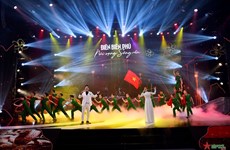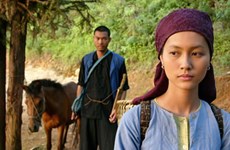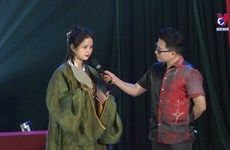Do Temple festival in Bac Ninh honours Ly Dynasty founder
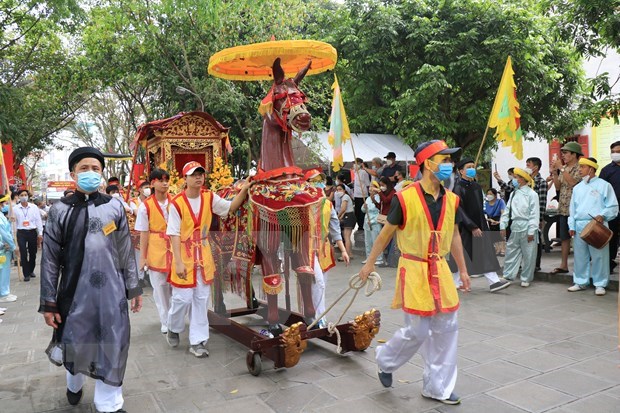 A procession ceremony at Do Temple (Photo: VNA)
A procession ceremony at Do Temple (Photo: VNA)Hanoi (VNA) - The Do Temple festival is held every year in honour of King Ly Cong Uan (Ly Thai To), founder of the Ly Dynasty (1009-1225). The festival is dedicated to reminding the youth in Vietnam of their roots and ancient connection to Vietnam.
The temple, dating back nearly a millennium, is among some of the most prominent tourist destinations in the northern province of Bac Ninh. It was built in honour of the eight Ly emperors of Ly Thai To, Ly Thai Tong, Ly Thanh Tong, Ly Nhan Tong, Ly Than Tong, Ly Anh Tong, Ly Cao Tong and Ly Hue Tong.
Discovering architecture of the Do Temple
The Do temple was built on an area of more than 31,000 square metres, encompassing 21 sub-constructions, with the main altar placed at the centre.
Its central section was built in 1028 after the death of King Ly Thai To, and the complex was enlarged to incorporate the final resting places of seven of his successors.
The structure also goes by other names, including Co Phap and Ly Bat De. The temple attracts an influx of visitors each year thanks to its unique architecture found among Vietnamese temples and pagodas.
The Do temple was constructed in 1030 on the southeast of Co Phap (Dinh Bang village at present), a location said to facilitate talents and success.
In 1010, King Ly Cong Uan visited his birthplace after taking the throne. During the trip, he paid tribute to the elderly and asked the local people to build a large house to welcome the kings.
When King Ly Thai Tong took the throne, he ordered renovation of that house and assigned it as the place to worship dedicated to his father who was king, and later for Ly kings following their death.
The temple went through numerous renovations over the years, and the structure that was built and maintained in 1602 was the largest such version of them all.
The Do Temple festival is among the grandest festivals in Bac Ninh province, scheduled to take place between the 14th and 16th day of the third lunar year, commemorating the date that King Ly Cong Uan ascended to the throne and issued ‘chieu doi do’ (Edict on the Transfer of the Capital).
The festival previously lasted four days then was reduced to three, with main activities being observed on the 15th day of the lunar month.
The traditional festival was of great importance for the Dinh Bang people and it even caught the interest of those residing in Thang Long (ancient name of the capital city of Hanoi) and neighbouring localities.
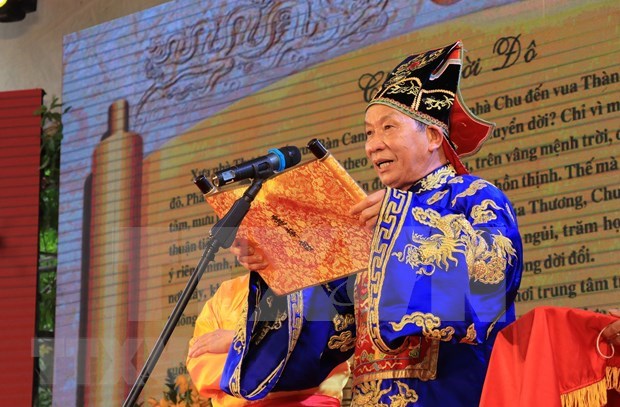 The re-enactment of the announcement of the ‘Chieu doi do’. (Photo: VNA)
The re-enactment of the announcement of the ‘Chieu doi do’. (Photo: VNA)The festival includes a procession ceremony in honour of Queen Dowager Pham Thi, mother of King Ly Thai To, which will be held in the afternoon on the 13th day of the third lunar month.
Meanwhile, the procession heading to Co Phap pagoda dedicated to eight Ly kings will be organised from the afternoon until night of the next day, following another heading to Do temple held on early morning of the 15th day of the lunar month.
The dragon dance will also be staged at the festival, expressing a dream for success of local people.
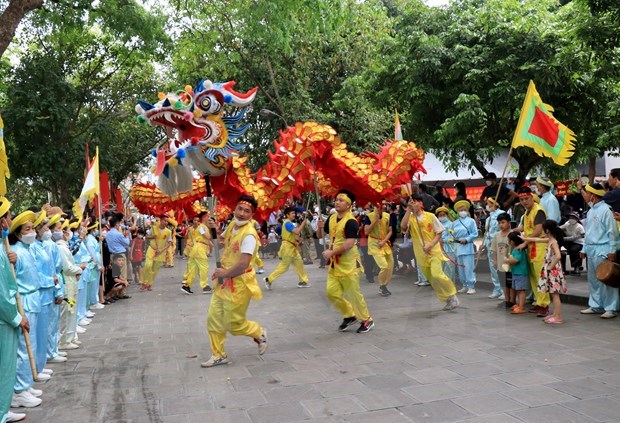 A dragon dance marks the start of the Do Temple festival. (Photo: VNA)
A dragon dance marks the start of the Do Temple festival. (Photo: VNA)Folk games held at the festival include wrestling, human chess, and cockfighting, together with a coordinated pigeon-release, rice cooking contest, calligraphy and quan ho (love duet) singing.
Many researchers explain that the festival is to express gratitude and pay homage to people who made contributions to the nation, particularly the Ly kings, and at the same time pray for happiness and harmony.
The Temples and Tombs of Kings of Ly Dynasty in Tu Son commune of Bac Ninh earned recognition as a special national relic in 2014.
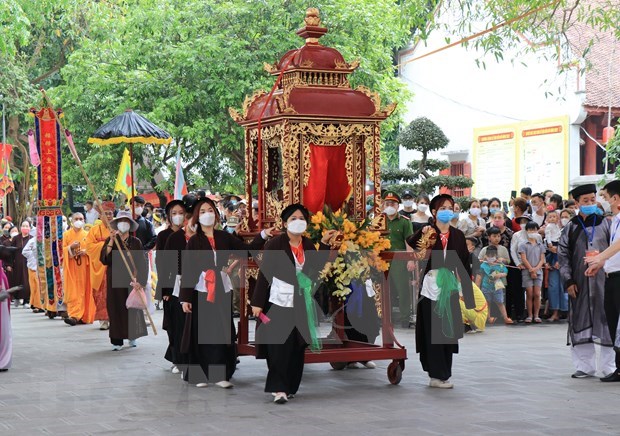 A procession at the Do Temple. (Photo: VNA)
A procession at the Do Temple. (Photo: VNA)In 2022, the festival was held on the two days in a simple manner amid the complex developments of COVID-19./.









